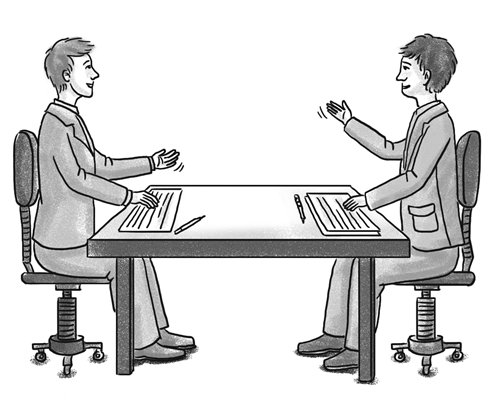HOME >> BUSINESS
Washington needs to pay attention to Beijing’s call to come back to the trade table
By Li Hong Source:Global Times Published: 2019/6/16 20:58:40

Illustration: Xia Qing/GT
If the Trump administration continues its condescending attitude toward China while refusing to take Beijing as an equal negotiating partner and to make long-overdue compromises on China's legitimate requests, chances remain slim for the two heavyweight economies to reach a trade deal in the coming month or two.
US President Donald Trump, in his recent interviews with American media, expressed his hope to meet and talk with Chinese President Xi Jinping during the G20 meeting in Osaka, Japan, slated to begin June 28.
Chinese negotiators say it is inappropriate for China to revise its legislation, scrap its industrial policies, or import extravagant amounts of US-produced goods beyond its actual needs just to placate Washington.
The Trump administration has been stuck in its position that any change to the draft pact is unacceptable. But, as it is known to all, on the negotiating table, nothing is agreed until everything is agreed. The intransigence displayed by the Trump administration bodes poorly for reaching a deal between the two countries in the foreseeable future.
With the impasse of talks dragging on, time is not on Trump's side. The breadth of the tit-for-tat tariffs levied on each other's goods will suffocate two-way trade, squeeze importers, exporters, manufacturers, wholesalers and end consumers, resulting in lost jobs and higher prices on both sides. Eventually, the world's two largest economies will feel the heat.
The probability looms large that the US economy, whittled and crippled by the escalating trade war, could lead to a serious slowdown, if not a recession, by the middle of 2020 - a pivotal time for Trump as he is expected to hit the campaign trail for his second term in the White House. A sputtering economy and diminishing wages and household wealth is the last thing a sitting president wants while seeking reelection.
Trade wars are not easy to win, as the world has learned through the lens of the tariff escalation and retaliations between the two giant economies over the past 12 months.
The belligerence of the US government and its ill move to use the weight of an entire country to clamp down on Huawei Technologies, a private high-tech company in South China's Shenzhen city, has infuriated huge numbers of Chinese citizens.
As tens of millions of people have hardened their belief that the US aspires to block China's rise and cut short their prosperity and growing quality of life, Beijing could ride the tide of its people, positioning the country for a prolonged tussle and struggle. Nevertheless, time is obviously running tight for Trump.
It seems that China's leadership has more means at its disposal to stave off the impact of the trade war, because the country has an unparalleled reserve of foreign currencies and a huge middle class with trillions of dollars of savings in the banks.
As the economy is fed by exports, domestic consumption and investment, China could reach into its pockets to ante up infrastructure project investment and domestic spending.
According to US media reports, Trump has tried to solicit opinion from former president Jimmy Carter for advice on his trade war.
We do not know if the two US presidents talked about how to end the trade war. For the benefit of young people in the two countries, and in order to return to normalcy in international trade as soon as possible, President Trump needs to heed China's earnest call and come back to the negotiating table.
The author is an editor with the Global Times. bizopinion@globaltimes.com.cn
Posted in: EXPERT ASSESSMENT